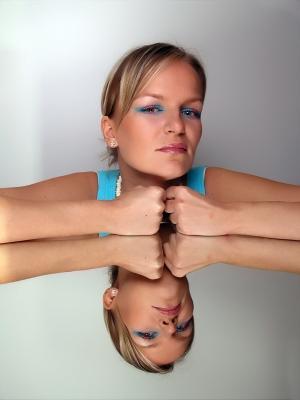
What thoughts race through your mind when you hear the question, “Is that your final answer?” Are you a contestant with good metacognitive skills? Can you judge how sure you are that the answer is right?
The skill to self-reflect and to know about yourself is a key to understand whether you just made a good decision. In a show like, “Who Wants to be a Millionaire?” the contestant who can judge how sure they are about the answer can avoid giving the wrong answer and use the lifelines in a sensible way. They can phone a friend or ask the audience then they are unsure of the answer.
Introspection or metacognition helps us to take a step further from being aware of our sensory inputs, it allows us to reflect and ponder over our decisions. Instead of being simply aware of being tired after the morning jog, we can reflect upon our feelings and the decision to try to run another 3 km and ignore the pain in the foot. This may inspire us to think that it may be a good idea to rest tomorrow.
Ways to supercharge yourself and help you to reflect accurately on what you see or experience would be an enormous boost. Yet it is difficult to determine exactly how sure you are that you have answered a question correctly or that you have really seen what you think you have seen. Ratings regarding how sure we are about an answer is linked to how successful we were in solving the problem.
Yet research into ways to support people with impairments in their metacognitive control hint at possible solutions (go here to read about ways to use metacognitive training to support people suffering from schizophrenia). It seems like the skill to reflect on our what we see and our decisions varies and it may be possible to train people to reflect on their thinking. Steve Fleming designed a situation where people were shown stripy patches of gray and asked to judge which one had the greatest contrast. The contrast of the stripes were adjusted so regardless of a person’s vision, everyone got around 70 percent of the answers right. So the only variable was a person’s skill to think about how sure they were about their answer. The task was made difficult so everyone had difficulties seeing which patch was brighter. No one was entirely sure about their answer yet despite the fact that everyone performed equally well, there were differences in how they assessed their own performance. Everyone was asked to rate their performance on a scale from one to six, and some people were better at introspection and reflecting upon their own thoughts.
Making a decision has a deep affect on us. Minutes after making a decision, we tend to think that we made the right choice and the rejected option is regarded as worse than before we made the decision. Interestingly this change in our perception appears to be long-term and it can last for up to a couple of years, which means that the decision we made shapes decisions long after we made it. So sometimes it might be sensible to admit to yourself that the decision was not the best one. This may prevent that you continue to make decisions based upon that “little mistake” for a long time. . .
Photo: “Young Lady With Reflection” by adamr
